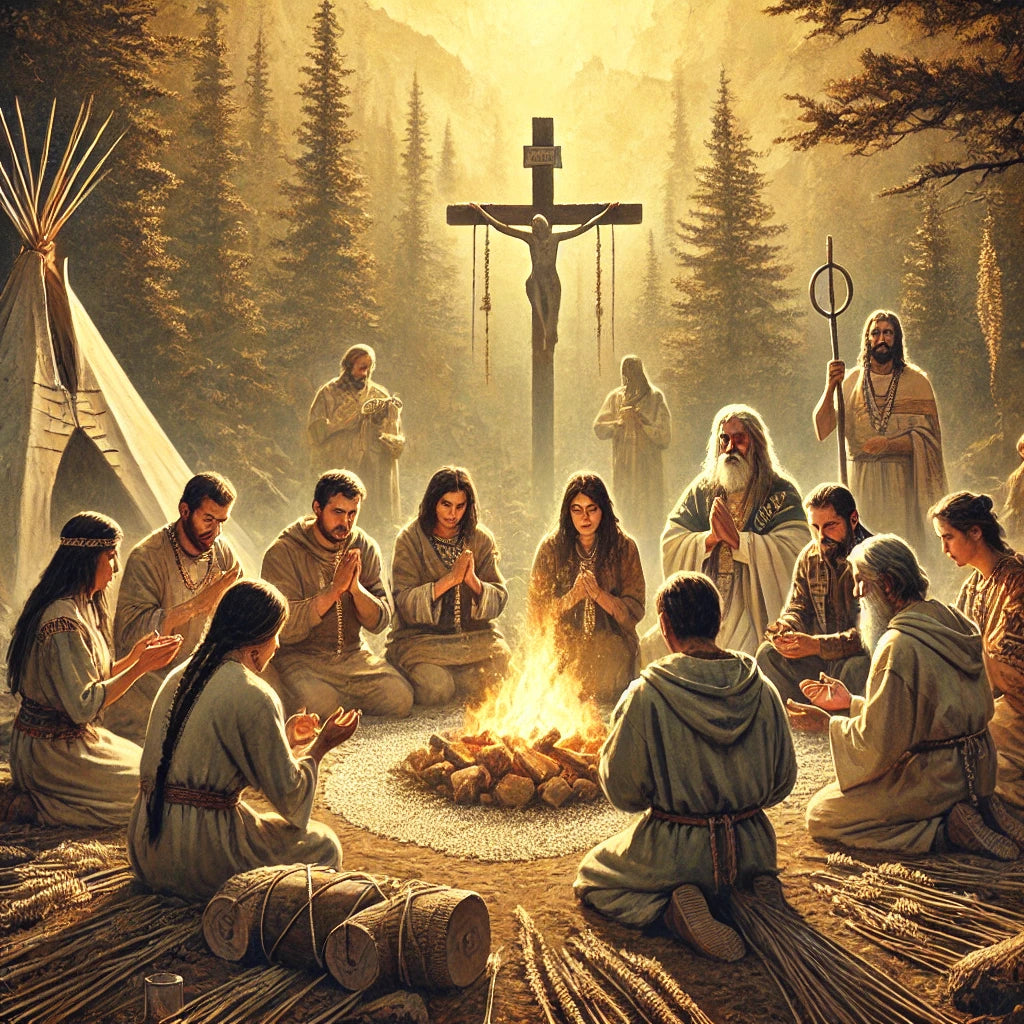
Peyote and Christian Prayer: A Sacred Intersection
Share
Introduction
Peyote, a small, spineless cactus native to the southwestern United States and northern Mexico, has been used for centuries in religious rituals and spiritual ceremonies. While peyote is most commonly associated with Indigenous spiritual practices, particularly within the Native American Church, its use has also found a place among certain Christian groups. This convergence of peyote with Christian prayer practices offers a unique perspective on faith, spirituality, and the search for divine connection.
The Historical and Cultural Context
The use of peyote in religious practices is deeply rooted in the spiritual traditions of Indigenous peoples, particularly the Huichol, Cora, and other Indigenous groups in Mexico, and various Native American tribes in the United States. For these groups, peyote is more than just a plant; it is a sacred medicine, a teacher, and a means of connecting with the divine.
The Native American Church (NAC), established in the late 19th century, played a pivotal role in formalizing peyote use in spiritual practices. The church blends traditional Indigenous spirituality with elements of Christianity, particularly the teachings of Jesus Christ. Within the NAC, peyote is seen as a sacrament, a gift from God that facilitates communion with the divine, healing, and spiritual growth.
Christian Adoption of Peyote
While the Native American Church is the most well-known group to incorporate peyote into Christian worship, there are other Christian denominations and communities where peyote use has been integrated into prayer practices.
In some cases, these practices emerge from a syncretic blending of Indigenous spirituality and Christianity. Missionary efforts and the colonial history of the Americas led to the introduction of Christianity among Indigenous populations. Over time, some Indigenous communities began to incorporate Christian teachings into their traditional spiritual practices, resulting in a unique form of worship where peyote is used alongside Christian prayers, hymns, and rituals.
These practices are not homogeneous but vary greatly depending on the community and its specific beliefs and traditions. For some, the use of peyote is seen as a way to deepen their Christian faith, providing a direct and personal experience of God's presence. For others, it is a continuation of their ancestral traditions, with Christianity adding an additional layer of meaning.
The Role of Peyote in Christian Prayer
In Christian contexts, peyote is often used in a manner similar to its use in the Native American Church. It is consumed in a ceremonial setting, typically during an all-night prayer meeting or vigil. Participants seek to open their hearts and minds to the divine, using peyote as a sacrament that helps them enter a state of spiritual receptivity.
The prayers and hymns sung during these ceremonies often reflect Christian themes, with a focus on healing, forgiveness, and the teachings of Christ. Participants may share personal testimonies of faith, offer prayers for themselves and others, and seek spiritual guidance through the visions or insights that peyote may provide.
For these Christians, peyote is not just a tool for spiritual exploration but a sacred gift from God that enhances their prayer life. They believe that peyote allows them to experience the presence of Christ in a profound and intimate way, bringing them closer to the divine and helping them live out their faith more fully.
Legal and Ethical Considerations
The use of peyote in religious practices is protected under U.S. law for members of the Native American Church, and this protection extends to some Christian groups that have incorporated peyote into their worship. However, the legal landscape is complex and varies by jurisdiction. In some cases, non-Indigenous Christians who use peyote in their religious practices may face legal challenges, depending on local laws and interpretations of religious freedom.
Ethically, the use of peyote by non-Indigenous Christians can raise questions about cultural appropriation and the respect for Indigenous traditions. For many Indigenous people, peyote is a sacred medicine with deep cultural significance, and there are concerns about its use outside of traditional contexts. Christian groups that incorporate peyote into their practices must navigate these ethical considerations with care, ensuring that their use of peyote is respectful and honors its cultural origins.
Conclusion
The use of peyote in Christian prayer is a fascinating example of the ways in which different spiritual traditions can intersect and enrich one another. For those Christians who use peyote in their worship, it is a powerful sacrament that deepens their connection with God and enhances their spiritual practice. However, this practice also requires sensitivity to the cultural and ethical implications of using a sacred medicine that is deeply rooted in Indigenous traditions. As these Christian communities continue to navigate the complexities of their faith and practices, they offer a unique perspective on the diverse ways in which people seek to connect with the divine.
